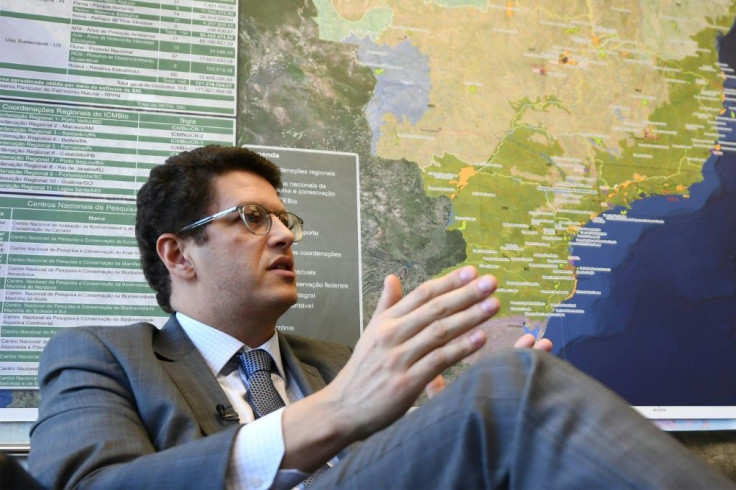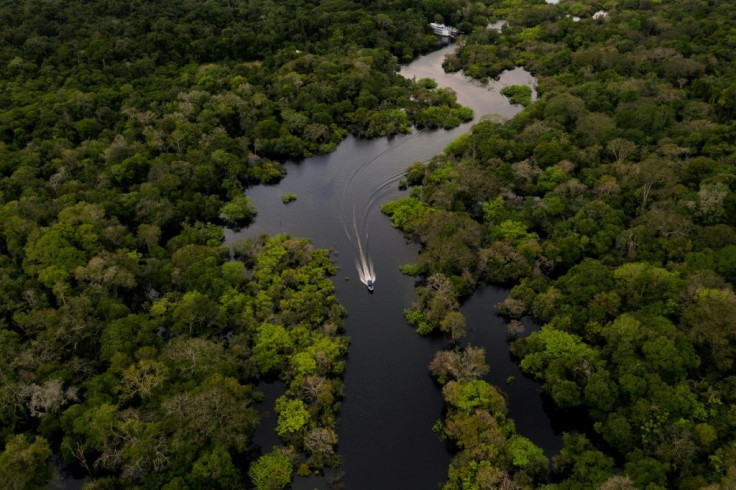Brazil Environment Minister Vows Results On Deforestation

Fending off accusations of using his post to dismantle protections of the Amazon rainforest, Brazil's environment minister promised Wednesday in an interview to deliver results on slowing deforestation by the end of the year.
Ricardo Salles is tasked with running environmental policy under far-right President Jair Bolsonaro, who faces accusations from environmentalists of encouraging deforestation with calls to open the world's biggest rainforest to mining and agriculture.
But Salles, a 45-year-old lawyer, said the government was taking concerted action to slow deforestation.
"The first step, which can be achieved in the second half of this year, is to stop the increase in deforestation," he told AFP.
"Starting next year, we're going to reduce deforestation and return to decreasing numbers. Brazil's commitment is to reduce deforestation to zero by 2030," under the Paris climate agreement, he added.
"But you don't reach that goal overnight. It takes a consistent, coherent plan."
Deforestation in the Brazilian Amazon set a new record for the first six months of this year, with 3,069 square kilometers (1,185 square miles) cleared, according to satellite data -- an area bigger than the nation of Luxembourg, and an increase of 25 percent from 2019.
That has revived international pressure on Brazil to do more to protect the forest, a vital resource in the fight to curb climate change.

Exacerbating the situation, the Pantanal, the world's largest wetlands -- a region situated just south of the Amazon and stretching from Brazil into Paraguay and Bolivia -- had a record 1,684 fires last month, triple the number from July 2019.
Salles faced intense criticism in April when a video recording was made public of a Bolsonaro cabinet meeting at which he said the coronavirus pandemic was an opportunity to roll back regulations "now that the media's only talking about COVID."

He denied he meant weakening environmental regulations, saying that he simply opposed red tape in general.
"Just because it takes 10 years to analyze something doesn't mean you're necessarily protecting" the environment, he told AFP.
The Bolsonaro administration has been at pains recently to show a more aggressive stance on deforestation, particularly after international investment funds controlling $4 trillion in capital threatened to pull out of the country over the issue.
Bolsonaro tasked Vice President Hamilton Mourao, an army general, with curbing deforestation as the head of an Amazon task force, whose measures have included deploying the army to fight the problem.
The move has eclipsed Salles, who at one point looked at risk of being sacked.
Mourao has called for investments in projects with names such as "More Forest" and "Adopt a Park," in which private investors will finance conservation operations at 100 national parks covering 15 percent of the Brazilian Amazon.
"There's the Brazilian government's response: come help us. We've put instruments in place for investment funds to help us preserve the Amazon," said Salles.
He repeated his criticism of wealthy countries that have dragged their feet on implementing emissions trading schemes set out in the Paris climate accord, which could be a lucrative market for Brazil.
"It's inconsistent to say, 'Save the forest, but we don't want to give you the money because we don't want to buy Brazilian carbon credits,'" he said.
And he denied accusations of dismantling environmental protection programs -- though he acknowledged policing the Amazon is a challenge.
"We're talking about an area the size of 16 European countries. You can't rely on policing alone," he said.
That problem pre-dates the Bolsonaro government, he underlined.
Salles admitted environmental authorities were under-staffed, but said they were already at just "50-percent staffing" when Bolsonaro took office in January 2019.
© Copyright AFP {{Year}}. All rights reserved.





















